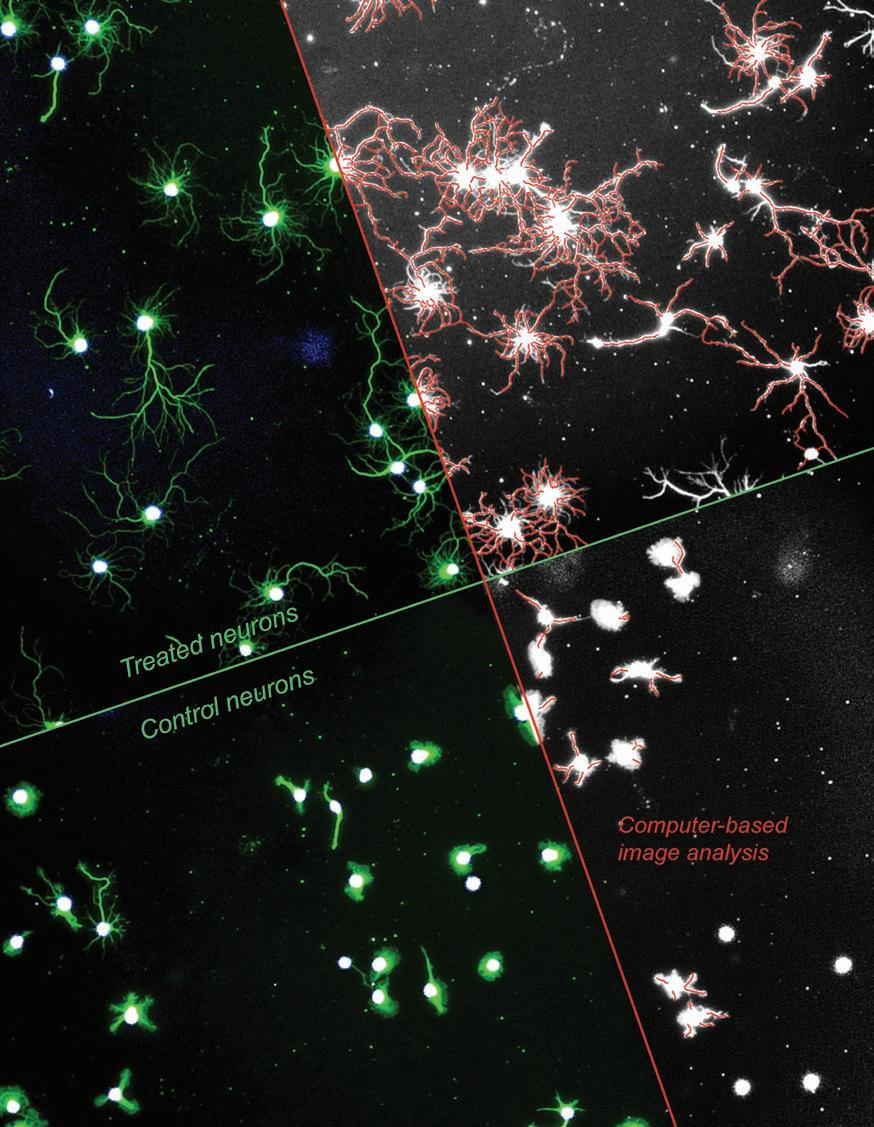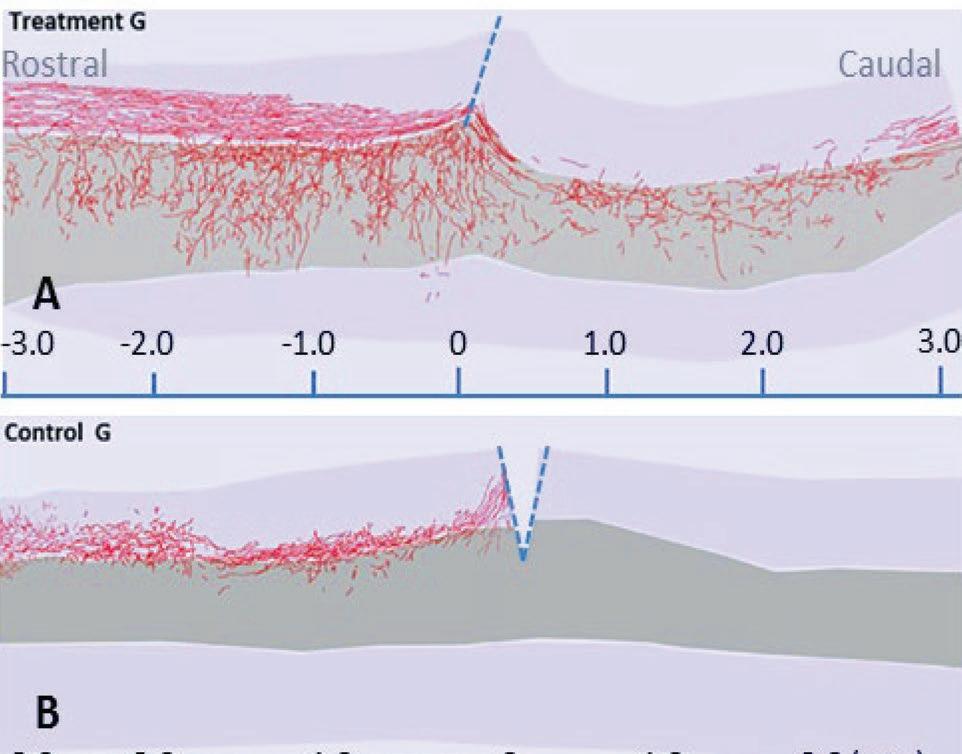
2 minute read
Development Program
for Spinal Cord Injury Crosses
Major Milestone and Accelerates Toward Clinical Testing
The Miami Project to Cure Paralysis has long led efforts aimed at regenerating and repairing the central nervous system (CNS). Institutions such as ours, possessing the full stack of expertise from early discovery to clinical application, are well-suited to compete for the highly regarded Blueprint Neurotherapeutics Network (BPN) Program from the National Institutes of Health (NIH). Accordingly, The Miami Project’s pursuit of this opportunity came to fruition for a program aimed at developing a novel therapeutic to treat spinal cord injury (SCI).
Recently, the program crossed a major milestone, moving from the exploratory phase into the development phase and accelerating its progression through preclinical studies. The team is led by Hassan A. Ali, Ph.D., M.S.M., Associate Professor of Neurosurgery and Medicine, and includes renowned Miami Project neuroscientists John Bixby, Ph.D., Professor emeritus of Molecular & Cellular Pharmacology and Neurological Surgery, Vance Lemmon, Ph.D., Walter G. Ross Distinguished Chair in Developmental Neuroscience and Professor of Neurological Surgery, and Jae Lee, Ph.D., Professor of Neurological Surgery, as well as Alberto Martinez-Arizala, M.D., Clinical Associate Professor of Neurology, Neurological Surgery, and Orthopedics & Rehabilitation Medicine.
Injured control spinal cord WITH drug treatment
A setup to concurrently image the body and outgrowths of multiple neurons, treated or not (control) with a drug being developed through the BPN Program. Computer-based image analysis allows for visualizaiton, and thus quantification, of new outgrowths following treatment.

As a milestone-driven program fashioned to resemble the pharma model, the BPN supports
Injured control spinal cord WITHOUT drug treatment
CNS drug development starting with medicinal chemistry and optimization of a lead compound, through pre-clinical testing and FDA clearance, all the way to execution of a Phase 1 clinical trial. This innovative funding model brings under one umbrella the major components of drug development and allows an awardee lab or small business to drive its program toward an Investigational New Drug (IND) application while fully retaining intellectual property rights. The project, titled “Developing a kinase inhibitor drug to treat spinal cord injury,” is currently one of just seven BPN programs nationwide, including both academic and industry awardees. As it is one of the few BPN programs to succeed in making the exploratoryto-development transition, and the only one to focus on paralysis caused by SCI, the program’s success in crossing this milestone marks a major development for The Miami Project’s mission of curing paralysis.
The team’s innovation lies in its understanding that there are many reasons why CNS axons fail to regenerate, with multiple points of failure interacting in a complex network. This inherent complexity means that even if a single-point intervention succeeds in overcoming a targeted point of failure, the system can alter other network elements to compensate and undermine the attempt. Classically, single-point or “hyper-selective” drugs were preferred due to ideas about the certainty of their end targets and effects. The tradeoff, however, was the need to use multiple drugs to affect multiple targets, increasing the risk of drug-drug interactions and untoward side effects resulting from the polypharmacopeia required to manage complex conditions like paralysis. The kinase inhibitor being exploited by Dr. Ali and team instead shifts the paradigm, designing one drug to have multiple on-label targets at several known points of CNS regeneration failure, including those both intrinsic and extrinsic to the regenerating nerve cells.
The recent transition marks the start of the development phase, so steps remain before an IND application is accepted to allow the move into a Phase 1 clinical safety trial. Stay tuned for updates on this project as our team continues to work diligently on exemplar projects such as this phased cooperative agreement with the NIH to develop a drug targeting CNS axon regeneration in people with paralysis. Stay tuned to our website www.themiamproject. org and as always, our Office of Education and Outreach can help inform you about this work and connect you to the researchers. Get in touch via email mpinfo@med.miami. edu or phone 305-243-7108.







